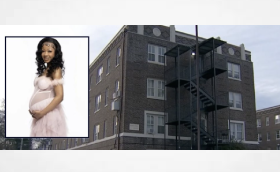In today’s ruling, it is clarified that cultivation in hydroponic hemp systems is legal unless empirical evidence testifies to public health risks
Brussels – According to the EU Court of Justice, member states cannot ban hemp cultivation in indoor hydroponic systems. The only limitation is respect for public health, that is, compliance with the legal limit of THC not exceeding 0.2 per cent.
The CJUE has taken a clear position on indoor cultivation. The ruling stems from a preliminary referral from the Romanian Court of Appeal in Alba Iulia, regarding the refusal of authorization for hemp cultivation received by the Biohemp Concept farm. Biohemp had not been granted permission to cultivate on a part of its land with a building “for agro-zootechnical purposes.” The Romanian court held that the authorization for the “cultivation of plants containing narcotic and psychotropic substances intended for industrial and food use, in the medical, scientific or technical field” should be limited to agricultural land stricto sensu.
The Court of Appeals referred the matter to the CJUE to clarify whether European regulations were compatible with permitting cultivation even for indoor hydroponic systems or whether there were additional limitations.
The Court has clearly said that, as long as it does not exceed the limit set for the protection of public health, indoor (authorised) cultivation is possible, considering that hemp is among the products included in the CAP. Indeed, hemp is among the products that, according to the European Regulation, make up the CMO, a common market organization, for which common criteria are established to be able to import hemp and hemp seeds into the Union (for uses other than planting) in relation to THC content. In essence, hemp and derivatives (excluding textiles) are regulated precisely at the trade level, and the hydroponic technique also benefits the CAP.
According to the Court’s findings, hydroponic cultivation increases agricultural productivity, develops technical progress, and ensures better use of inputs. In addition, it ensures the security of supply, as it is not subjected to direct weathering, and reasonable prices to the consumer. Not allowing hemp farmers to benefit from the CAP with this innovative technique would cause significant economic damage (taking into account that the criteria for receiving funding are strict and well-defined at the European level to avoid illicit cultivation).
The only limitation possible and provided for in the ruling is empirical evidence of risks to public health, which overrides the European objectives related to the CAP. It must be assessed “whether the scientific analyses […] show that there are uncertainties as to the existence of an increased risk of exceeding the THC content limit (compared to the permitted, ed.)” with regard to this type of cultivation. Otherwise, the European legislature does not provide for prohibitions, balancing the objectives of the CAP and its products with the protection of the public health of citizens.
“This ruling reinforces the need to base national policies on scientific data and compliance with European regulations,” says Mattia Cusani, president of the National Association of Hemp Sativa Italy. “We call on the Italian government to reconsider the measures proposed in Article 18 to avoid damaging a strategic sector for the national economy.” In Italy, after the stop alla cannabis light by the Meloni government’s security bill, many voices were raised to protect an agricultural supply chain, which employs about 15 thousand people and generates an annual turnover of €500 million. The government, for its part, has defended the “cannabis” amendment, asserting that the limitation serves to prevent illegal trade in “inflorescences and their derivatives, purchased for recreational use.”
The Italian ban on the sale of inflorescences is now at odds with a more progressive EU, and supply chain associations are calling on the Italian government to reconsider Article 18, favouring a regulation based on scientific evidence and sustainable development of the sector. From now on, it will not be possible to restrict the trade and cultivation of L sativa hemp arbitrarily, but only if there are risks to public health.
English version by the Translation Service of Withub



















